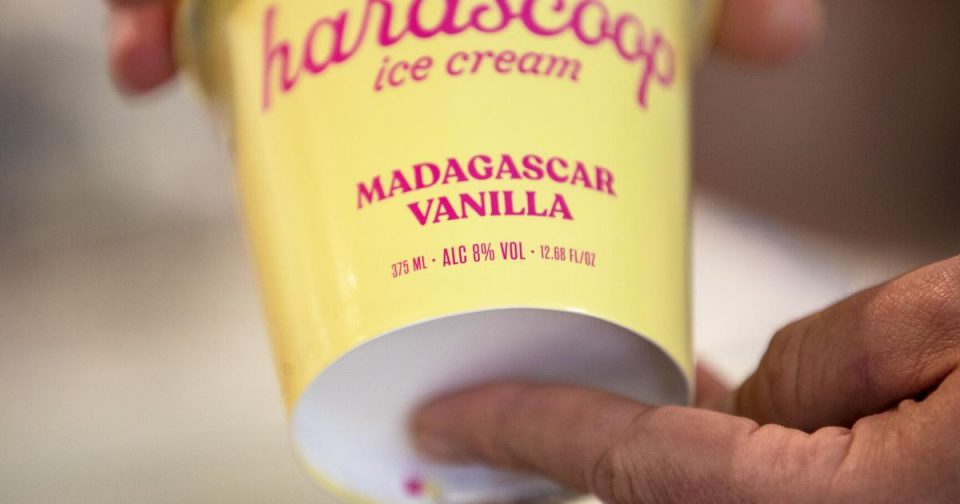COLUMBIA — South Carolina’s burgeoning alcoholic dessert sector could be facing a rocky road ahead.
A Statehouse subcommittee unanimously advanced a bill on March 2 meant to close a loophole in state law that allows alcoholic-infused desserts like ice cream and popsicles to be sold in supermarkets, convenience stores and by food trucks.
Most alcohol products are strictly regulated by state law already. However, S.C. manufacturers of alcohol-infused products like ice cream fall under an obscure rule in state statute that lawmakers colloquially referred to as the “bakery exemption.”
It allows wholesalers to use alcohol as an ingredient in food products without the level of oversight for products like beer, wine or spirits.
While existing law set the stage for the popular and innovative new products, lawmakers and state officials say an oversight allowed the proliferation of desserts with high levels of alcohol to be sold in convenience stores and from mobile vendors like pontoon boats, hand carts and food trucks with little to no oversight.
The loophole also exempts infused desserts from alcohol taxes, which are currently set at $2.72 per gallon of product.
“Unlike a can of beer, a bottle of wine, a bottle of liquor or a drink poured at a bar, these products could theoretically be sold to a 12 year old,” said Perry Mathis, administrator of alcohol beverage licensing at the S.C. Department of Revenue, at a March 2 hearing on the bill. “And there’s absolutely nothing that law enforcement or the Department of Revenue could do to them.”
While industry groups including the Wine and Spirits Wholesalers Association and the Beer Wholesalers Association expressed support for the bill, several producers of alcoholic-infused desserts expressed alarm.
Representatives of the dessert makers said they welcomed the prospect of regulation, but said the language of the bill is too restrictive and would likely limit many higher-alcohol products to the shelves of liquor stores. They argued those stores lack the infrastructure necessary to keep large quantities of ice cream and frozen cocktails at temperature.
One of those companies is PROOF Alcohol Ice Cream, A Columbia-based wholesaler that had begun producing boozy frozen treats under the state’s bakery exemption in 2015. Since founding the company, Jennifer Randall-Collins — a former University of South Carolina basketball player — has invested approximately $6 million on manufacturing facilities to produce the ice cream while employing more than two dozen full-time employees.
Changing the regulations, said PROOF’s lobbyist and former Columbia mayor Bob Coble, would be tantamount to a death sentence for the company.
“This bill, if the provisions apply to us, would shut the company down,” Coble said. “We wholesale our product to grocery stores, and there is not currently sufficient refrigeration — frozen infrastructure — in the state’s three-tier system for us to survive.”
Many companies that sell the products already comply with the laws currently on the books, their representatives said, and that their products are certified by the S.C. Department of Agriculture. Many also operate under retail licenses obtained from the state Department of Revenue.
Some businesses, including the Charleston-based company Booze Pops, only employ workers aged 21 or older, and require the verification of a customer’s age at the point of sale.
Woody Norris, the company’s founder, said that rather than closing the existing loophole, lawmakers should instead write new legislation regulating businesses like his, where he purchases frozen cocktails wholesale and sells them out of a truck. Since opening, Norris has expanded his business to a fleet of more than one dozen trucks, with a presence in Charleston, Myrtle Beach and Columbia, employing more than 250 people since opening.
Closing the loophole without drafting new regulations, he argued, would effectively stop the business in its tracks.
“We do not want to be legislated out of business,” Norris said. “And this bill would do that.”
The March 2 vote was just the beginning of the process. The bill will now go on to the full Judiciary Committee and, if passed, move on to the House floor for debate.
Contact Nick Reynolds at 843-834-4267. Follow him on Twitter @IAmNickReynolds.



